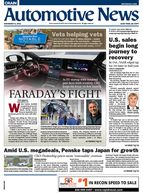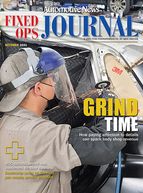Advanced driver-assistance systems such as adaptive cruise control are less likely to be in use on curvy roads than on straightaways, according to a study released this summer by the Insurance Institute for Highway Safety.
It is a concerning finding since the crashes that such systems are meant to limit are more likely to happen on curvier roads than on straight ones, said Wen Hu, senior research transportation engineer for IIHS.
"The safety benefit would be maximized if drivers could use [the systems] or these systems could work on these sharper curves," Hu said.
The study drew on test data from the Advanced Vehicle Technology Consortium at the Massachusetts Institute of Technology based on how 39 drivers used 2016 Land Rover Range Rover Evoque and 2017 Volvo S90 vehicles over the course of four weeks. Both vehicles were equipped with adaptive cruise control, and the Volvos had a system that combines adaptive cruise with lane centering.
IIHS researchers could not determine whether drivers deactivated the systems as they approached a curve or if the systems were deactivated automatically.
But researchers found that the Evoque drivers were 72 percent less likely to use adaptive cruise control on sharp curves. The same was true for 75 percent of those driving the S90.








